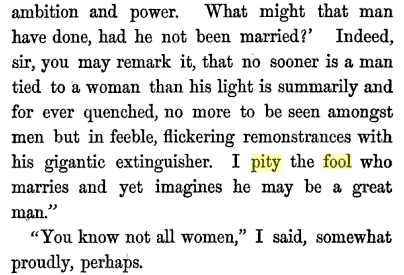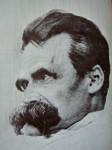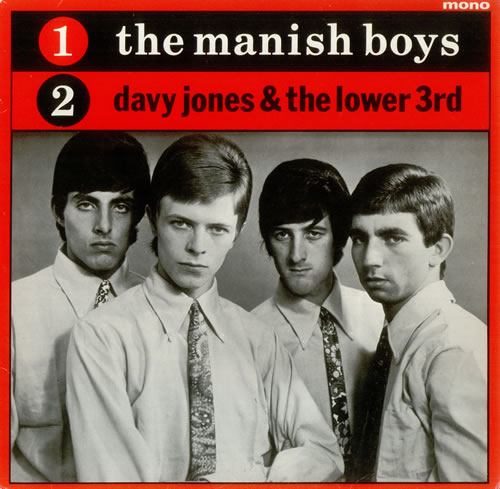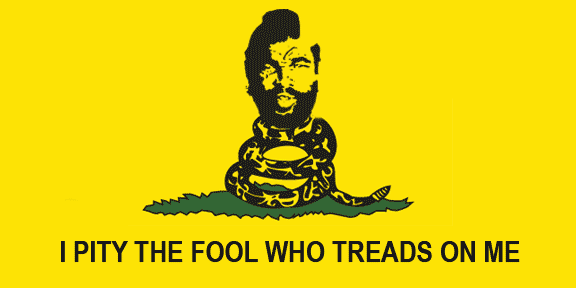I Pity the Fool Who Doesn't Read the Text
If you're reading this, you're already familiar with pop culture meta-character Mr. T'south grab phrase, "I pity the fool." It immediately conjures Mr. T's swaggering confidence and the ironic "compassion" that he feels for the sucka that's been targeted for a Mr. T beat-down.
Rocky III (1982) was the first instance of Mr. T uttering the line that would well-nigh define his career. But where exactly this this magical combination of words come from? Sylvester Stallone'southward brain? Although he's the sole credited writer for Rocky Three, and as far every bit I can tell, in that location's no prove that suggests that Mr. T ad libbed the line, I find it hard to believe that Stallone alone could be responsible for such greatness. So I did a little research. OK, a lot of enquiry. And here's what I institute.
Background: A Definition of "Pity"
Merrian-Webster defines compassion as "sympathetic sorrow for one suffering, distressed, or unhappy." The typical usage of the discussion "pity," then, is far dissimilar from Mr. T's typical usage. If I feel pity for my sick friend, I feel bad for him, and I promise he gets better. If Mr. T feels compassion towards a fool, he doesn't experience bad for the sucka, and he hopes he gets the chance to punch his lights out. More on that later. But showtime, let's examine some of the earliest instances of "compassion" in Western Civilization:
Biblical Pity
 In the Old Attestation, the LORD exemplifies pity mostly by non showing it to fools, suckas, and sinners:
In the Old Attestation, the LORD exemplifies pity mostly by non showing it to fools, suckas, and sinners:
"And I will dash them i against some other, even the fathers and the sons together, saith the LORD: I will not pity, nor spare, nor accept mercy, but destroy them."
(Jeremiah 13:xiv)
"And mine eye shall non spare thee, neither volition I accept pity: but I will recompense thy means upon thee, and thine abominations shall be in the midst of thee: and ye shall know that I am the LORD."
(Ezekiel 7:four)
This stands in stark contrast to Mr. T, who, different the LORD, claims to prove pity to the targets of his vengeance.
Shakespearean Compassion
 Shakespeare similarly uses the discussion "pity" in a straightforward sense; that is, ane that roughly equates to mercy:
Shakespeare similarly uses the discussion "pity" in a straightforward sense; that is, ane that roughly equates to mercy:
For pity is the virtue of the law,
And none but tyrants use it cruelly.
(Timon of Athens, three.5.10), Alcibiades
Notation once again the dissimilarity with Mr. T's usage of pity. Outside of his turn as Rocky's protagonist, his fool-pitying is e'er targeted at tyrants and others who abuse his sense of justice and the law.
Scotland: The Birthplace of Fool-Pitying?
I may have found the earliest usage of the phrase "I pity the fool" in the English language. Well, at least according to Google Books, information technology is. "James Merle: An Autobiography," published in 1864, is the primeval example of the phrase actualization in Google Books' collection of over 10 million titles.
Here's the extract:

To exist honest, I accept no idea who James Merle was. The first few pages of the autobiography provide scant context for the guy's life (outside of the fact that he lives in Scotland), and, well, there's no Wikipedia entry for the guy, much less his friend "Gregory" who is attributed with the above fool-pitying.
That being said, at that place'southward still value in analyzing the utilize of this phrase. At kickoff, the pity appears to be genuinely sympathetic, but the speaker and then describes the object of his pity equally a fool, one who holds unrealistic expectations of post-marital greatness. He's simultaneously pitying and taunting. Sounds familiar, right? You lot betcha, sucka.
However, this taunt lacks the menace that accompanies Mr. T'south pity. For that, we must plow to Friedrich Nietzche.
Philosophical Principles of Fool-Pitying
 Nietzsche paved the way for the full extent of Mr. T's fool-pitying in his 1880 piece of work, The Wanderer and His Shadow (the third part of Human, All Also Human being). It's less of a philosophical treatise and more of a collection of aphorisms, all around the common theme of debunking assumptions of the day. In that spirit, he wrote the following:
Nietzsche paved the way for the full extent of Mr. T's fool-pitying in his 1880 piece of work, The Wanderer and His Shadow (the third part of Human, All Also Human being). It's less of a philosophical treatise and more of a collection of aphorisms, all around the common theme of debunking assumptions of the day. In that spirit, he wrote the following:
To evidence pity is felt as a sign of contempt considering i has clearly ceased to exist an object of fearfulness as soon equally 1 is pitied.
Nietzsche takes Merle's fool-pitying 1 footstep further past emphasizing the power dynamics of pitying. The person doing the pitying is typically in a superior position to the object of pity, but what Nietzsche implies here is that prior to whatever display of compassion, the object of pity was actually an object of fear. Showing pity removes the fright and replaces it with contempt.
(Now, I know what y'all're thinking. Fear and Mr. T typically don't go together.
Need I remind yous?)
Fool-Pitying Comes to America
Until 1902, fool-pitying had yet to cross the Atlantic from its roots in Scotland and Federal republic of germany to the future home of Mr. T. That year, American journalist and writer Opie Read published the post-obit statement:

This fits squarely with Nietzschean and T-ean view of fool-pitying. Taunting. Contempt. Lack of actual pity. Read, however, paved the way for Mr. T to channel this vengeful pity for a good crusade through his use of fool-pitying to further patriotism and dear of America.
All of the elements of fool-pitying that Mr. T would come to embody were present with Read. Except, of class, the blackness: the status of oppressed minority that gives fool-pitying much of its defiant ability.
Black America Claims Fool-Pitying
In 1960, dejection vocaliser Bobby "Blue" Bland released the single "I Pity The Fool." This vocal both brings united states closer to and takes us away from Mr. T's unique class of pity. It brings us closer in that information technology uses an African American cultural vehicle to popularize the phrase "I pity the fool"…
…merely it takes us away in that the pity in this vocal is much more traditional than that of Nietzsche, Read, or T and lacks the same defiant power:
I pity the fool that falls in love with yous
I pity the fool, I compassion the fool who falls in love with y'all
You'll pause his eye one day so you'll laugh and walk away
I compassion the fool
Bland's pity towards the fool that falls for his onetime lover seems genuine, and if there is any scorn or antipathy to exist found in this vocal, information technology's towards the woman and not her new lover.
White Britain Appropriates Fool-Pitying, Gives it Back to Black America
Bland'due south vocal was a hit and inspired some notable covers, including one by a British blues group The Manish Boys in 1965. The lead vocaliser of that group?

David Freaking Bowie. I bet yous didn't expect to run into David Bowie mentioned in an article about fool-pitying. To be fair, The Manish Boys were just one of many white British groups to appropriate African American blues into their rock acts, merely in this age of Mr. T-ean fool-pitying, there's something incredibly jarring to recall of this guy pitying whatsoever fool other than himself:
 I have a better thought. Why not have Stevie Wonder cover this song instead?
I have a better thought. Why not have Stevie Wonder cover this song instead?
That's much ameliorate. Now fool pitying has returned to its African-American roots, albeit still without the sense of righteous antipathy that Mr. T would soon come up to embody.
Fool-Pitying Enters the Modern Era
Sylvester Stallone's script for Rocky Iii (1982) represents the synthesis of many of the previous forms of fool-pitying that we discussed earlier.
There's the synthesis of races (Stallone, a white human, writes the line for T, the black man), the lack of actual compassion, and the lack of fear. But remember the stardom between Nietzsche and Read's differing forms of fool-pitying? Information technology seems that at this point, Mr. T's fool-pitying is decidedly of the former: it is pure antipathy without whatsoever of the effective aspects of the latter.
The full realization of Mr. T's fool-pitying–that unique blend of blackness, contempt, and effective customs building, would come not through the A-Team (1983), simply rather through the inspirational video Be Somebody or Be Somebody'southward Fool (1984):
Through a series of lessons on Anger Management, Pause Dancing, and Recouping, Mr. T preaches values to American youth…with the threat of wrathful violence never far from the surface.
Fool-Pitying Comes Full Circle
One would presume that Mr. T's own Tv evidence I Compassion the Fool (2006) would stand for the culmination of the previous century'south development of modern fool-pitying. But in a surprising move, the show represents a return to a decidedly traditional view of fool-pitying. In this "Reali-T" testify, Mr. T helps real-life fools with their bug. Not past throwing them into walls and making them pay for their foolishness, though. Instead, he'southward more of a life coach, working out problems through arbitration and motivational speaking.
In other words, he really is pitying fools in the style that fools were pitied prior to Nietzsche, Existent, and T: through showing pity for the distressed.
The Future of Fool-Pitying
What has get of the fool-pitying that Mr. T espoused? If he himself is no longer the harbinger of ass-kicking bearded equally pity, then who will take this mantle?
Fortunately, in that location are those who stand ready to pick upwards where our hero has left off:
1) The cast of the new A-Team movie (June 11, 2010):
Merely don't concord out for these suckas. Before this movie comes out, go a member of…
two) The Mr. T Party (May 21, 2010)

This nascent, grassroots political movement embodies Mr. T's classic course of fool-pitying:
- Contempt for fools.
- Boot the asses of fools who dare cross us.
- Love of liberty and justice
Pity fools today, tomorrow, and forever. Join the movement today. I pity the fool who don't.
ardenthathater1974.blogspot.com
Source: https://www.overthinkingit.com/2010/05/04/i-pity-the-fool-origin/
0 Response to "I Pity the Fool Who Doesn't Read the Text"
Post a Comment